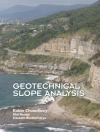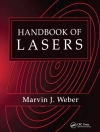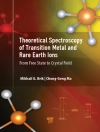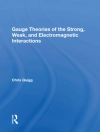This book highlights leading-edge research in multi-disciplinary areas in Physics, Engineering, Medicine, and Health care, from the 6th IRC Conference on Science, Engineering and Technology (IRC-SET 2020) held in July 2020 at Singapore. The papers were shortlisted after extensive rounds of reviews by a panel of esteemed individuals who are pioneers in their domains. The book also contains excerpts of the speeches by eminent personalities who graced the occasion, thereby providing written documentation of the event.
Tabella dei contenuti
Chapter 1. Investigating the efficacy of Magnetite as a sedative in Drosophila melanogaster.- Chapter 2. Improving the workflow of Chemical Structure Elucidation with Morgan Fingerprints and the Tanimoto Coefficient.- Chapter 3. Transport and Optical Studies of Two-Dimensional Electron Gas in Al N/Sr Ti O3 Heterostructure.- Chapter 4. A Comprehensive Study into the Magnetic Levitation of a Magnetic Stirrer.- Chapter 5. 3D Printed Prosthetic Hand.- Chapter 6. NLP in fake news detection – an ensemble deep learning approach in style based and truth based detection.- Chapter 7. Automatic Grading of Online Formative Assessments using Bidirectional Recurrent Neural Networks and Attention Mechanism.- Chapter 8. An Evaluation of the Presence, Type and Suggestions about the Mechanisms of Drug Interaction between Venetoclax and GSK595 in Multiple Myeloma.- Chapter 9. Lasing in Chlorophyll: A Theoretical Investigation.- Chapter 10. Machine Learning of Biological Data in Cell Manufacturing.- Chapter11. Automation of Precision Ellipsometry System.- Chapter 12. The Influence of Transfection Methods on the Molecular Dynamics of the Cell Plasma Membrane.- Chapter 13. Engineering of a Novel Inhibitor of Factor XIa With Better Stability and Inhibitatory Efficiency.- Chapter 14. Computational Studies of Cell Durotaxis on Extracellular Matrix Rigidity Gradients as a Model for Wound Healing and Fibrosis.- Chapter 15. Effects of Hand Soap, Detergent and Dishwashing Soap on Bacterial Microbiome, Sebum and p H of skin.- Chapter 16. Achieving Low Resistance Ohmic Contacts to Transition Metal Dichalcogenides (TMDCs).- Chapter 17. Smart Surgical Tools Checker.- Chapter 18. Magnetisation Transport in XXZ Spin Chains.- Chapter 19. Graphene and Montmorillonite-Enabled Ultrastretchable Integrated Chemical Barriers and Fire Retardant Nanocoatings for Next-Generation Protective Clothing.- Chapter 20. Monte Carlo Method in Chemical Engineering.- Chapter 21. The Efficiency of using Biowaste as a Greener Alternative to Conventional Fuel.- Chapter 22. Plasma-based Defect Engineering of Graphene for Optimised β-D-Glucose Sensing to Monitor Diabetes.- Chapter 23. Organic Solvent Nanofiltration Using Fish-scale-derived Membrane.- Chapter 24. An acoustic study on the dispersive flexural modes of wave propagation in a helical spring.- Chapter 25. Micro RNA-profiling based screening of non-small-cell lung cancer in plasma.- Chapter 26. Low-cost draw-on electronics: Investigation of pen-substrate interaction.- Chapter 27. Exploring The Use of Apple Skin to Boost The Energy Efficiency of Microbial Fuel Cells.- Chapter 28. Screening and Characterisation of Novel Environmental Phages.- Chapter 29. Synthesis of Magnetic Carbonised Banana Peel as a Versatile and Reusable Adsorbent for Water Purification.- Chapter 30. Improving b-bit Minwise Hashing with Addition of Standard Vectors.- Chapter 31. Biobutanol Biofuel production via ABE Fermentation from bread waste for an energy-sustainable Singapore.- Chapter 32. EEG based multitasking assessment using simultaneous spatiotemporal stimulus.- Chapter 33. The effects of vermicomposting Soybean waste (Okara) biostimulants on the quality of growth of Brassica rapa var. parachinensis (commonly known as choy sum).- Chapter 34. NOVEL COMBINATION OF PLANTAR PRESSURE AND LOWER LIMB ROTATION MEASUREMENTS TOWARDS MONITORING AND EARLY DETECTION OF DIABETIC FOOT ULCERS.- Chapter 35. Io T Smart Trolley System For Healthcare.- Chapter 36. Portable Precision Ellipsometer for Analysis of Molecular Layers.- Chapter 37. Incorporating dilemma reasoning into modern SAT Solvers.- Chapter 38. Evaluating the effectiveness of audio, visual and behavioural calibrations on EEG-based relaxation training.- Chapter 39. Empirical Evaluation of Perimetry and Electrophysiology methods in visual field assessment.- Chapter 40. Improving the performance of Lithium-ion batteries using Silicon-metal based anodes.- Chapter 41. Enhancing the capabilities of a water dielectric resonator antenna to support wireless charging.- Chapter 42. Protective Effect of Bacopasides on 7-Ketocholesterol Induced Damage in Human Brain Endothelial Cells.- Chapter 43. Using sorbents for subsurface oil spill cleanups.- Chapter 44. Investigation on the Effects of Different Concentrations of Nitrogen on the Growth of Ocimum Basilicum.- Chapter 45. From waste to worth: Silver recovery and its electrochemical transformation to nanoparticles.- Chapter 46. Isolation and Characterization of Pseudomonas aeruginosa Phages From The Environment.- Chapter 47. FTIR and SEM study on the degradation of microplastics.- Chapter 48. Membrane Synthesis for Commercially Viable Osmotic Power Generation by Pressure Retarded Osmosis (PRO).- Chapter 49. Bioremediation of Arsenic-contaminated Water through Application of Bioengineered S.Oneidensis.- Chapter 50. Analyzing Recursive Sequences by Big Data Technologies.- Chapter 51. Machine Learning using Satellite Remote Sensing to predict Agricultural Yield of Cash Crops in USA.- Chapter 52. DNA Proximity Circuit: A Universal Platform for Analyzing Biomarkers.- Chapter 53. Wireless Interface for Electrical Impedance Tomography.- Chapter 54. Wearable Physiological Stress Monitoring System – A Proof-of-Concept Study.- Chapter 55. Fabrication of Microbial Fuel Cells powered by soil-based electrogenic microbes and wastewater as a novel method for electricity generation and wastewater purification via a novel hybrid process.- Chapter 56. Synthesis of Photocatalytic Iron(III) Fumarate Metal Organic Framework Microrods for the Degradation of Organic Dyes.- Chapter 57. Aerosol Jet Printed Temperature Sensor for Wireless Healthcare Monitoring.- Chapter 58. Facile and One-Step Synthesis of Zirconium Oxide Nanoparticles for Removal of Phosphate and Lead(II) Ions.- Chapter 59. A Novel Electrochemical Enhancement of Activated Carbon Fibre for the Purification of Contaminated Pharmaceutical Effluents.- Chapter 60. Investigating the use of phosphate removing organisms in bioremediation.- Chapter 61. Security Development with an Industrial Device for SCADA System.- Chapter 62. Investigating the effect of phytoextracts on protecting Saccharomyces cerevisiae from oxidative stress.- Chapter 63. Development of a First-aid Smart Assistant Device using Io T Technology and Augmented Reality.- Chapter 64. The Synthesis and Design of Nanoparticles for Measuring Traction Forces in Living Cells.- Chapter 65. AN INVESTIGATION INTO THE ABILITY OF MESOCARP OF DURIAN, LEMON, POMELO AND SWEET ORANGE IN REDUCING RESIDUAL NITRITE CONTENT IN PROCESSED MEAT PRODUCTS.- Chapter 66. Novel Therapeutic Strategy Suppresses Mosquito saliva-enhanced CHIKV infection.
Circa l’autore
Dr. Huaqun Guo is currently Senior Scientist at the Institute for Infocomm Research (I2R), A*STAR Research Entities and President of International Researchers Club. Dr. Guo obtained her B.Eng and M.Eng from Tianjin University, and her M.Eng and Ph D from the National University of Singapore (NUS) respectively. She was a senior engineer at Kent Ridge Digital Labs (KRDL) from October 2000 to May 2001. She was a senior research staff at NUS from June 2001 to March 2003. She was Chairperson of IEEE Singapore Women In Engineering (WIE) Affinity Group in 2011 and 2012, chairperson of IEEE Broadcast Technology Society Singapore Chapter in 2013 and 2014, and chairperson of IEEE Intelligent Transportation Systems Society Singapore Chapter in 2015, 2016, 2018, and 2019. She has published 80 papers in international journals, conferences and books. She is an editor of a book, Automotive Informatics and Communicative Systems: Principles in Vehicular Networks and Data Exchange. Her research areasinclude Network and Communication Security, Cyber-Physical Security, Industrial Internet of Things (IIo T) Security, Vehicular Network and Security.
Dr. Hongliang Ren received his Ph D in Electronic Engineering (specialized in Biomedical Engineering) from the Chinese University of Hong Kong (CUHK) in 2008. He has navigated his academic journey through the Johns Hopkins University, Children’s Hospital Boston, Harvard Medical School, and Children’s National Medical Center, United States. He has been leading a research group on medical robotics at the National University of Singapore. His main areas of interest include biorobotics and intelligent control, medical mechatronics, soft continuum robots and sensors, and multisensory learning in surgical robotics. He is an IEEE Senior Member and currently serves as an Associate Editor for IEEE Transactions on Automation Science & Engineering (T-ASE) and Medical & Biological Engineering & Computing (MBEC). He is the recipient of NUS Young Investigator Award and Engineering Young Researcher Award, IAMBE Early Career Award 2018, Interstellar Early Career Investigator Award 2018, and ICBHI Young Investigator Award 2019. Dr. Noori Kim is an Assistant Professor in Electrical and Electronic Engineering at Newcastle University in Singapore. She serves as a vice-chair of IEEE Singapore Women In Engineering (WIE) Affinity Group in 2020. Dr.KIM graduated with a Ph D in electrical and computer engineering from the University of Illinois at Urbana-Champaign (UIUC) in 2014. KIM received her BS and MS degrees in computer science from Ewha Womans University in South Korea in 2006 and 2008. During her two years of MS degree study, she was invited to attend the Fraunhofer Institute for Computer Graphics Research IGD in Darmstadt, Germany, as a short-term visiting scholar. Her other accomplishments include research at Stanford University (Palo Alto, USA), Department of Medicine in 2007 as a visiting scholar. Dr. Kim’s general research interests include acoustics, electro-acoustics, hearing-aids, Internet of Things (Io T), transducers and sensors, embedded systems, electromagnetic systems. Her studies focus on both theoretical insights into scientific research as well as developing physical application systems.












